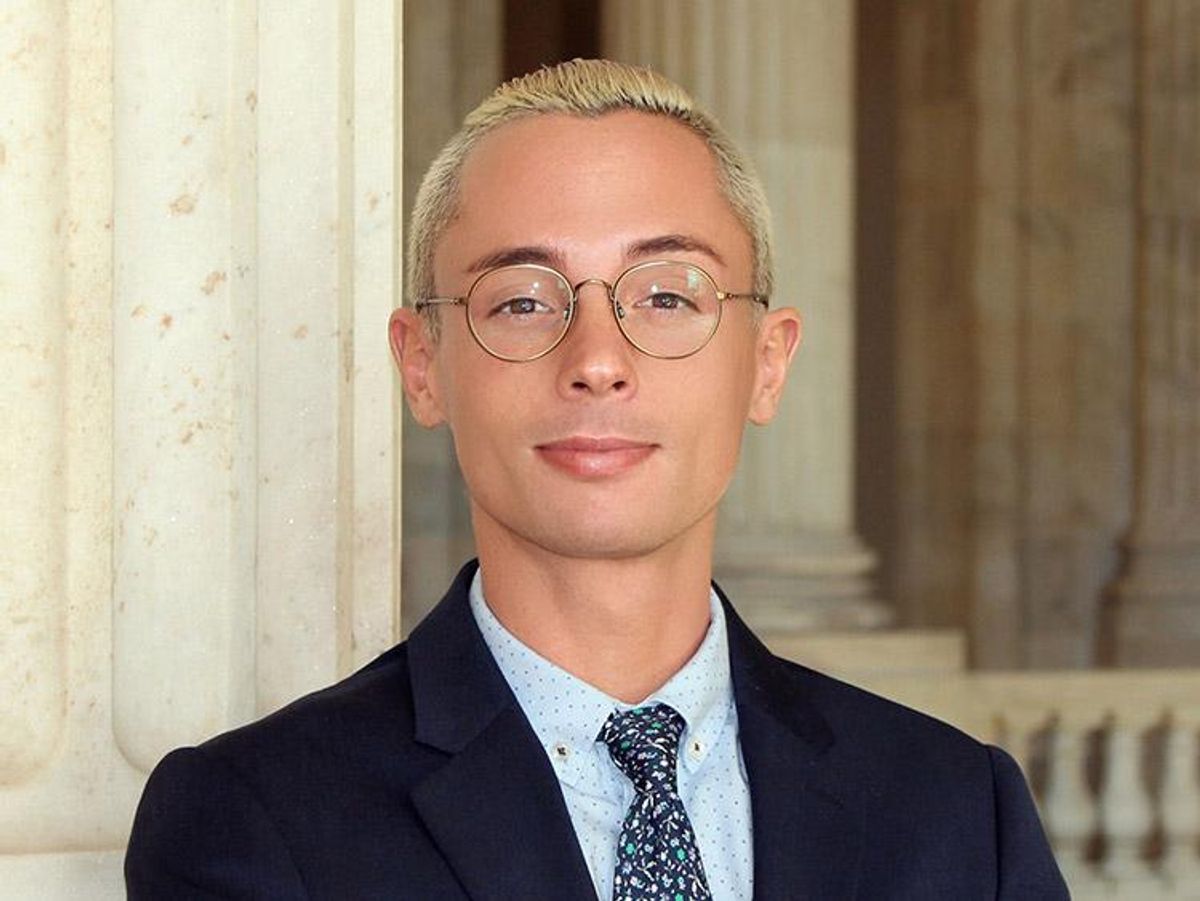Kristopher Sharp was 18 and homeless when he found out he was HIV-positive. Writing about that time for Huffington Post last year, Sharp explained, “My life was reduced to two pairs of cloths, a well-worn backpack, and the streets. By day, I begged strangers for their change; and by night, I was turning tricks for a place to stay, a shower, a hot meal, or whatever resources I could trade my body for. That was my reality.”
Sharp received his HIV diagnosis after attempting to donate blood to make some money. He left a Houston, Texas, blood bank with a letter saying he could no longer donate plasma because his previous donation had tested positive for the virus. Initially his diagnosis wasn't his greatest concern: not having food and shelter was.
Like far too many foster children in America, Sharp found himself on the street when he aged out of the system since foster care only provides for children until their 18th birthday. By that time, Sharp had lived in over 20 different homes.
Eventually Sharp found a home as student at the University of Houston-Downtown. By then he had gotten into care and his viral load had become undetectable. During his third year working towards his undergraduate degree in social work, Sharp vied to win a position in the UHD’s student government organization.
That's when Sharp learned how much stigma can impact someone's life. As Plus reported at the time, a smear campaign was run against Sharp. Flyers were scattered around campus using his sexuality and HIV-positive status to degrade him. Yet despite this obstacle, Sharp went on to win the election and his story galvanized anti-bullying activists. The national attention also helped launch Sharp's political career.

The young activist went from student government in Texas to interning on Capitol Hill, where his experience with bigotry helped Sen. Patty Murray (D-Wash.) craft the Tyler Clementi Higher Education Anti-Harassment Act.
“Had that incident not taken place, I wouldn’t have been able to [help Senator Murray],” Sharp says.
The bill was introduced initially during the 2013-2014 congressional season, and then reintroduced as bill last year by Mark Pocan. Currently in committee, the Tyler Clementi Higher Education Anti-Harassment Act of 2015 was also introduced in the Senate last year and is in committee there too.
According to HRC, the legislation would require colleges and universities to "prohibit harassment of enrolled students by other students, faculty, and staff based on actual or perceived race, color, national origin, sex, disability, sexual orientation, gender identity, or religion." Unfortunately, the bill died in committee and never became law.
Sharp went on to become a Fellow with the Congressional LGBT Equality Caucus in Washington, D.C. He has certainly come a long way from being 18, HIV-positive, and homeless.
“His…journey [is one] that gives me hope and proves that when communities invest in those who have less, we have the capacity to change lives,” says Loranda Parker of Parker Insights, one of the people who nominated Sharp for Plus’s Most Amazing HIV-Positive People list.
Paker and Sharp are working together on "a docuseries that focuses on life after aging out of the foster care system. It centers the experiences of young adults who identify as LGBTQ."
Although he also realizes how far he has come, Sharp acknowledges, “The sad reality is that most young people like me are not given the same chances. There are fewer things more profound than the actions we take to better the lives of others. I know that if we work together, we can ensure that all young people, no matter who they are or where they come from, have the opportunity to pursue their God-given talents and dreams. This is the sole reason I do the work that I do — and I don’t intend to stop until this is the reality for all young people.”

















































































